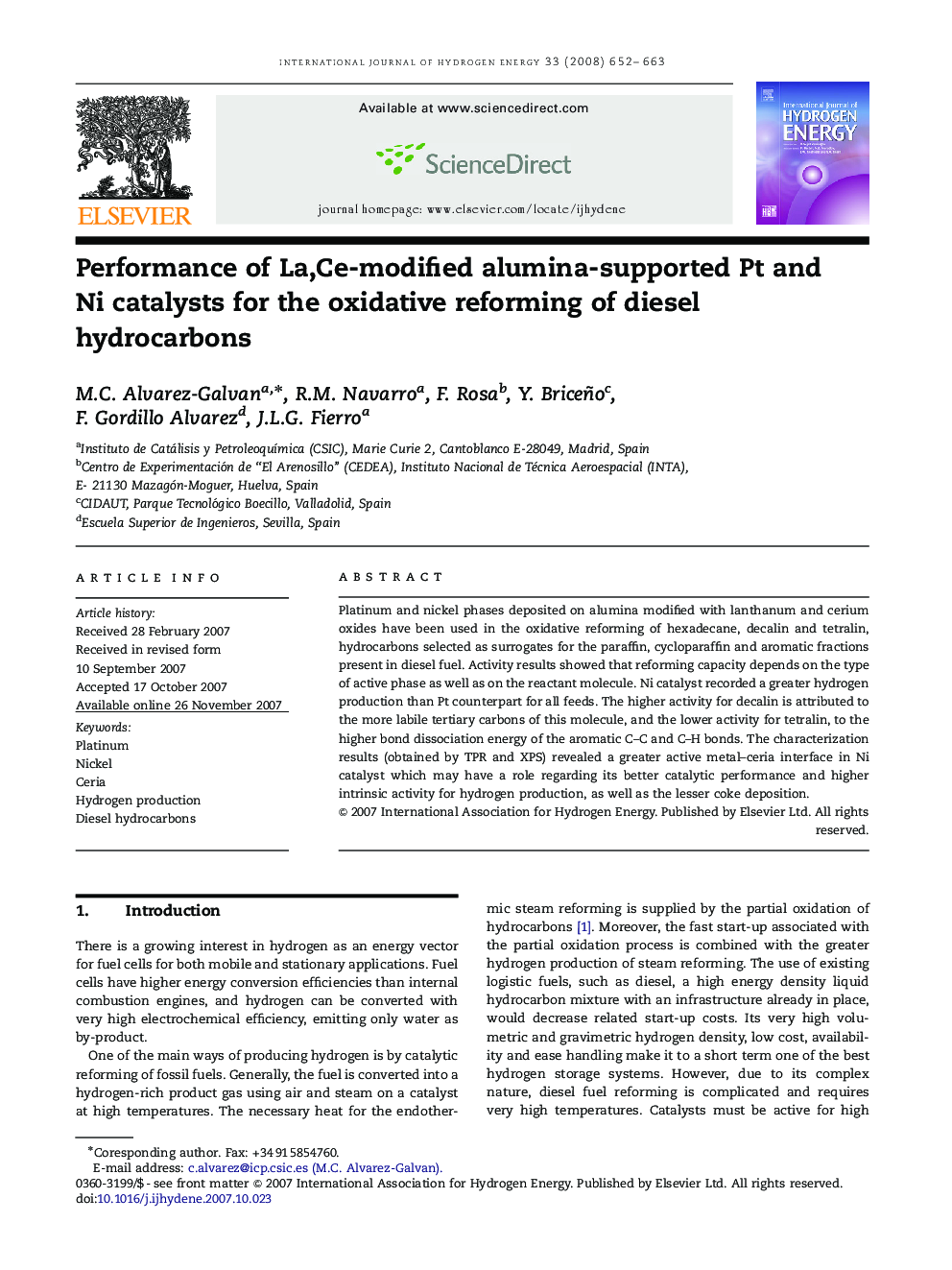| کد مقاله | کد نشریه | سال انتشار | مقاله انگلیسی | نسخه تمام متن |
|---|---|---|---|---|
| 1279992 | 1497664 | 2008 | 12 صفحه PDF | دانلود رایگان |

Platinum and nickel phases deposited on alumina modified with lanthanum and cerium oxides have been used in the oxidative reforming of hexadecane, decalin and tetralin, hydrocarbons selected as surrogates for the paraffin, cycloparaffin and aromatic fractions present in diesel fuel. Activity results showed that reforming capacity depends on the type of active phase as well as on the reactant molecule. Ni catalyst recorded a greater hydrogen production than Pt counterpart for all feeds. The higher activity for decalin is attributed to the more labile tertiary carbons of this molecule, and the lower activity for tetralin, to the higher bond dissociation energy of the aromatic C–C and C–H bonds. The characterization results (obtained by TPR and XPS) revealed a greater active metal–ceria interface in Ni catalyst which may have a role regarding its better catalytic performance and higher intrinsic activity for hydrogen production, as well as the lesser coke deposition.
Journal: International Journal of Hydrogen Energy - Volume 33, Issue 2, January 2008, Pages 652–663